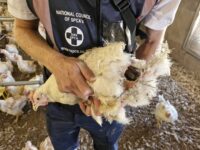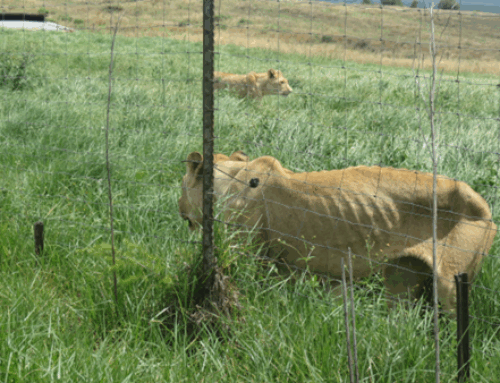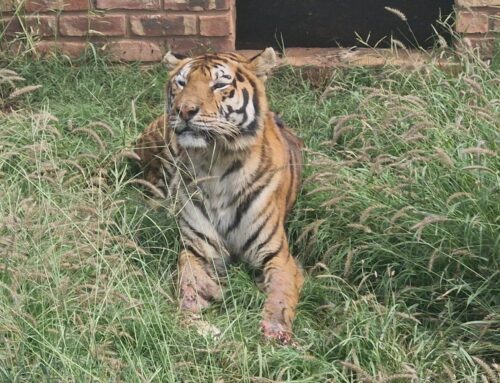The National Council of SPCAs’ (NSPCA) swift intervention has resulted in the rescue of 12 young Chacma Baboons from a University in the Free State. This action followed the discovery by the NSPCA that the baboons were wild-caught and destined for biomedical research for which there was no ethical approval.
The baboons were captured and removed from their natural environment in Limpopo and transported to the Free State research facility where they were kept in cages awaiting the research to commence.
Not only were these wild baboons traumatised by the capture process but they were also denied their freedom and subjected to captivity, which caused unnecessary stress and suffering. The NSPCA opposes the unnecessary confinement of wild animals.
Having secured the release of the baboons and arrangement for the necessary permits, the NSPCA transferred these displaced primates to a rehabilitation centre in Limpopo. The Centre for Rehabilitation and Education (CARE) assisted with care and the safe keeping of the baboons for a period of seven days, pending their release back into the area they had been captured from some four weeks earlier.
The day of their release from captivity arrived, and after final health checks were conducted by the NSPCA veterinarian and members of CARE team, the 12 baboons were successfully released back into their home territory. They have embraced their freedom.
“We are elated that we were able to intervene and give these primates the opportunity to return to the wild. The release process went smoothly and it was truly heart-warming to see them back in familiar territory, taking those initial steps towards their returned freedom,” said Erika Vercuiel, Manager of the NSPCA’s Animal Ethics Unit.
The NSPCA Animal Ethics Units’ intervention and the valued assistance of CARE has resulted in a second chance for these baboons.
~~
Use of animals in Research:
The use of animals in research is an extremely complex and controversial issue both locally and internationally. As such, broad-based practical initiatives are needed to address animal welfare concerns within this field. The NSPCA Animal Ethics Unit serves on 46 Ethics Committees throughout South Africa to ensure that animals being used for research are not subjected to unnecessary pain and suffering.
Research animals are used for many different purposes in research, teaching and testing, and each area of use raises specific ethical, welfare and scientific issues. The NSPCA adopts a constructive and practical approach, assessing every issue individually, critically questioning the necessity and justification for animal use. Animals used in research should receive humane and compassionate treatment at all times and the NSPCA campaigns for measures that will help replace animals, reduce the number of animals used and refine the methods used to avoid suffering and improve welfare.
The NSPCA is opposed to animal experiments which involve unnecessary repetitions, are for scientifically trivial ends or which involve techniques for which satisfactory and humane alternatives have already been developed. We are opposed to all experiments or procedures which cause pain, suffering or distress.
The NSPCA is strongly opposed to the use of wild-caught animals of any species regardless of their conservation status.
If you are as passionate about animals and their well-being as we are, consider supporting our causes by donating.
Latest News Posts
Will You Be the One Who Takes Action?
Most people will scroll past this. But will you be the one who stands up for animals?
Animal welfare isn’t always in the spotlight, but it changes lives – for every neglected, abused, or suffering animal we help. Our teams work tirelessly, often behind the scenes, ensuring animals across South Africa are protected.
This work is relentless. The challenges are immense. But with more hands, hearts, and resources, we can do even more.
The equation is simple: the more supporters we have, the greater our reach, the stronger our impact.
Be part of the change. Become an NSPCA Project Partner today. From just R50 per month, you can help ensure that no animal suffers in silence.






